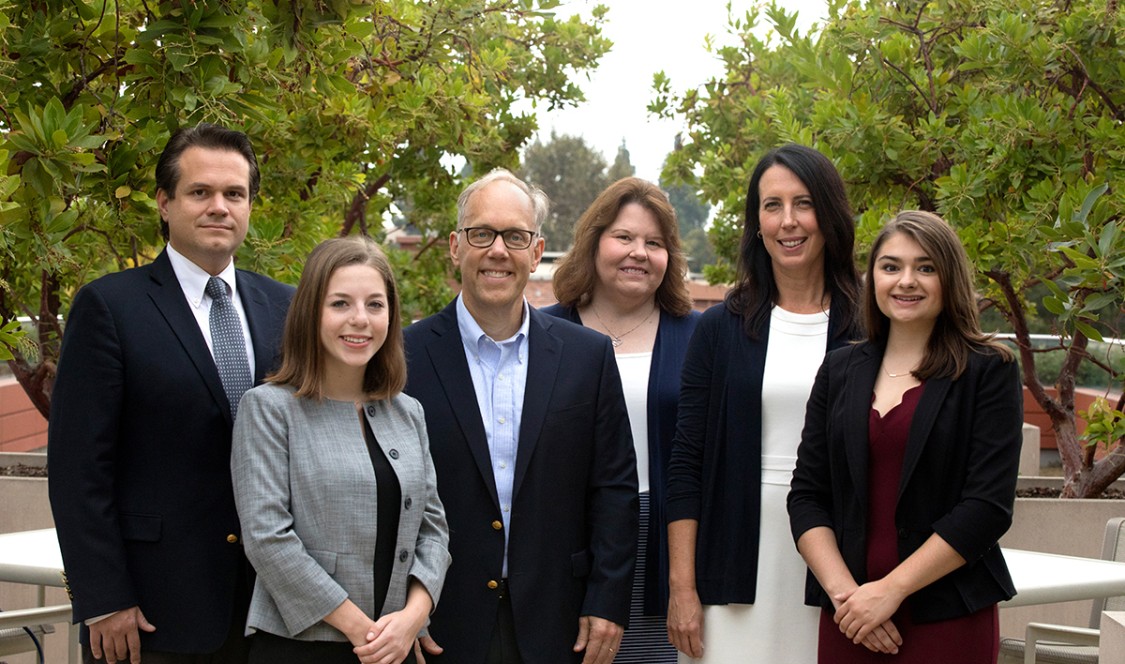Across the CMC curriculum, members of our faculty are meeting the challenge of these unprecedented and historic times, delivering exceptional coursework in a fully online modality for the spring semester. In our Academic Innovations series of faculty Q&As, professors share their curricular highlights, best practices, and how students are helping to shape virtual learning for a memorable, collaborative academic experience.
Zach Courser ’99 (left), visiting assistant professor of government, and Eric Helland, William F. Podlich Professor of Economics and George R. Roberts Fellow, are teaching Policy Lab this spring. Courser and Helland are also co-directors of the research program.

With Policy Lab starting this spring at a moment of change in national leadership, how do you anticipate the shift in political power influencing the class?
Starting our class just after the inauguration helps us to demonstrate how the agenda in Washington is shaped by elections, and how this creates new opportunities for policy change. The policy environment changes with each administration, as political priorities shift and policy professionals reshuffle positions around Washington. We have already reshaped our syllabus to reflect changes in the administration and Congress, choosing different readings and policy areas that better reflect the emerging direction of Washington politics.
It’s also interesting for students to see the confirmation process for presidential appointees, and how persistent the network of policy professionals is in Washington. President Biden has hired several think tank staffers to work in his administration, many of whom had worked for President Obama. The work they did while out of government will help to shape the policy preferences of the new administration. Likewise, former Republican administration officials will be entering think tanks to develop new ideas for governance in anticipation of the next election.
Is there extra excitement because the class is happening at a time of tremendous policy activity and political change in Washington? What do you think the effect will be with students?
The 2020 election cycle kept politics foremost in our minds, and there is definitely excitement in Washington to shift gears from a long year of debates and rallies to actual policymaking. Policy proposals are an important part of campaigns, but the legislative process provides us more opportunities for teaching how policymaking works. We think that students eager to see change in Washington on key issues like immigration and healthcare will be very engaged in how these policies unfold over the next five months.
What projects or policy initiatives will you be focused on for spring?
Policy Lab has undertaken a year-long analysis of federal disrupted elections policy. Together with a partner at the American Enterprise Institute, the policy report outlines alternatives to creating a consistent and uniform law for protecting the integrity of federal elections during emergencies. Last semester, we did a 50-state analysis of election laws, and created a database of state emergency powers during disrupted elections. This semester, we will be using this database to analyze how these laws affected the management of elections during the pandemic, and make recommendations for how the federal government can support consistent and effective policy for maintaining the integrity of elections.
What are some ways that you are reimagining the class in a virtual environment? Does virtual learning and collaboration lend itself nicely to your team-taught practice?
In one sense, Policy Lab has always had a virtual component. Although we would normally do in-person classes and staff meetings, most of our meetings with clients have been virtual. Moreover, the students have always been very comfortable with working virtually.
Interestingly, this more virtual environment is pretty common at think tanks. In our experience, researchers at policy think tanks are often remote and teams working on projects have been using video conferencing like Zoom for years. The nature of policy work—which mostly takes place during staff meetings in which work is divided up, progress is reported, and comments offered—really lends itself to working remotely. RAND, where one of us is an adjunct economist, does almost all its work remotely, and in fact has offices in Washington D.C., Pittsburgh, Santa Monica, and Cambridge. It’s pretty common to work on a team with people from all of the offices.
What is the biggest challenge and biggest opportunity in teaching Policy Lab at this moment given the convergence of major political shifts and the ongoing pandemic?
We all miss meeting together in our offices, which we affectionately call “The Clubhouse.” But we’re very happy with how well we’ve been able to adapt our program to distance learning. Much of our lab work is done in teams, with the weekly staff meetings giving us all a chance to coordinate and discuss our research. This has given us a team spirit that makes our class very rewarding and something we all look forward to each week.
Since our partners are usually in Washington, much of our interaction with them is done with video conferences. So, while we don’t have the opportunity to fly partners to Claremont to have them meet with students, we probably have better access to them than ever. The new standard of Zoom makes people in Washington more accessible, which has allowed us to meet with our partners and other policy professionals in a way we might not have been able to before.
—Thomas Rozwadowski

